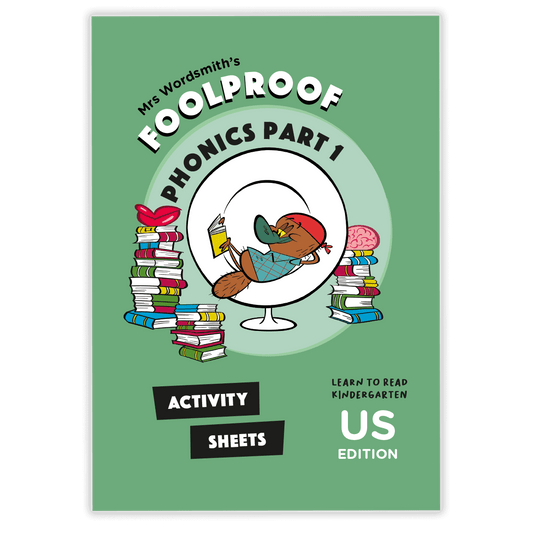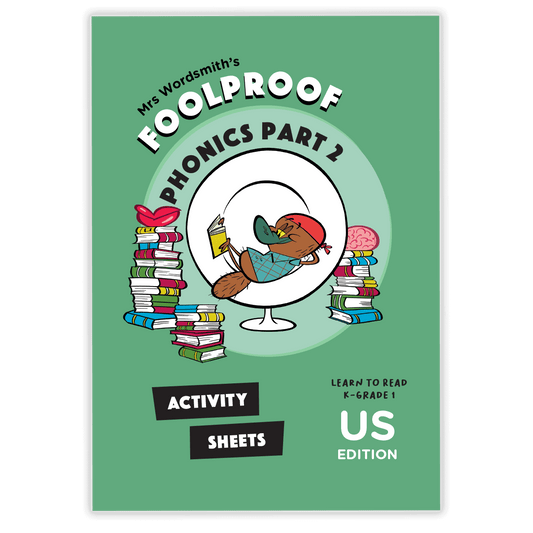Words are more than just tools for communication. They’re the very foundation of learning, confidence, and future success. But not every child has the same access to the rich vocabulary they need to thrive. The latest Oxford Language Report (2023-24) [1] makes it clear: vocabulary development is a critical, urgent issue for schools, families, and communities alike.
Table of contents:
- Vocabulary: The Key to Unlocking a Child’s Potential
- Why Are So Many Children Falling Behind?
- What Can Schools Do to Support Vocabulary Development?
- Vocabulary Changes Lives
Vocabulary: The Key to Unlocking a Child’s Potential
Research shows that vocabulary knowledge has a profound impact on reading development, academic achievement, and even emotional well-being. Children with a strong vocabulary are better readers, more confident when facing new challenges, and have the words to identify and express their emotions with more accuracy and depth. In fact, vocabulary is so important that it’s now a central focus in the UK’s Department for Education Reading Framework, which positions vocabulary as being essential for unlocking the whole curriculum. But the reality in classrooms is sobering. Over half of teachers report that more children are falling behind in vocabulary development than in previous years. On average, four out of ten students are so far behind in vocabulary that it impacts their learning. Even more worryingly, the pandemic has widened this gap, with teachers seeing the effects every day.
Why Are So Many Children Falling Behind?
The Oxford Language Report highlights several reasons:
- School closures and disruptions have limited opportunities for rich language experiences.
- Barriers at home include lack of time, limited resources, and sometimes parents’ own confidence with English.
- Bad quality screen time and busy schedules can crowd out time for reading and conversation.
- Socioeconomic factors can impact a child’s exposure to rich language.
- Multilingual households can offer unique strengths, but they can also raise challenges if a child is not confident in the main language used within their school.
Despite these challenges, nearly all teachers and parents agree: vocabulary matters, and children with better support at home do better at school. Yet only 44% of schools actively encourage parents to help with vocabulary, and just 27% provide vocabulary-focused activities for home.
What Can Schools Do to Support Vocabulary Development?

The good news is that schools can make a huge difference – and it doesn’t have to be expensive or time-consuming. Here’s what the research recommends:
1. Make Vocabulary a Whole-School Priority
While 90% of schools say vocabulary is a medium-to-high priority, only half have a school-wide strategy. Schools that embed vocabulary instruction into every subject (not just English) help children see words in context and use them confidently across the curriculum. Interesting words are everywhere, in every school subject. Teachers can help children notice them and understand what they mean. Having encountered them in a relevant context, is likely to make them more memorable.
2. Create a Structured Progression
Vocabulary development should be planned and include enough support from the earliest years through secondary school. This means introducing new words in a logical sequence, revisiting them often, and supporting students as they encounter more complex academic language.
3. Use Dedicated Vocabulary Tools and Approaches
Vocabulary shouldn’t be a once-a-week activity. Use a variety of resources – word walls, games, discussions, and digital tools – to keep vocabulary learning active and engaging. Teach word roots, synonyms, and etymology to deepen understanding. If you’re looking for a ready-made word wall with lots of engaging information, look no further than our Narrative Journey programme. It’s proven to boost vocabulary scores by 50% in just one term… and it’s totally free!
4. Support Multilingual Learners
Children learning English as an additional language may need more time, but they also benefit from the cognitive and social advantages of multilingualism. It’s important to celebrate home languages and provide extra support to help these students build strong vocabulary networks in English and beyond.
5. Connect School and Home
The most effective vocabulary strategies involve families. Schools can:
- Suggest simple, everyday activities like talking together while cooking or walking.
- Encourage reading for pleasure and provide guidance on discussing new words at home.
- Use digital tools to share vocabulary and conversation starters with parents.
- Avoid overwhelming families with word lists; instead advice parents to focus on having meaningful conversations with their children in every context about things they experience.
Vocabulary Changes Lives
The conclusion of the Oxford Language Report is pretty conclusive. Children who build a rich vocabulary are better equipped to read, write, think critically, and connect with others. They’re also more likely to enjoy learning and approach life with curiosity and confidence. At Mrs Wordsmith, we’re passionate about giving every child the words they need to succeed. By making vocabulary a shared priority between schools and families, schools can help close the word gap and open up a world of possibilities for every student.











 https://mrswordsmith.com
https://mrswordsmith.com
Comment
Leave a comment